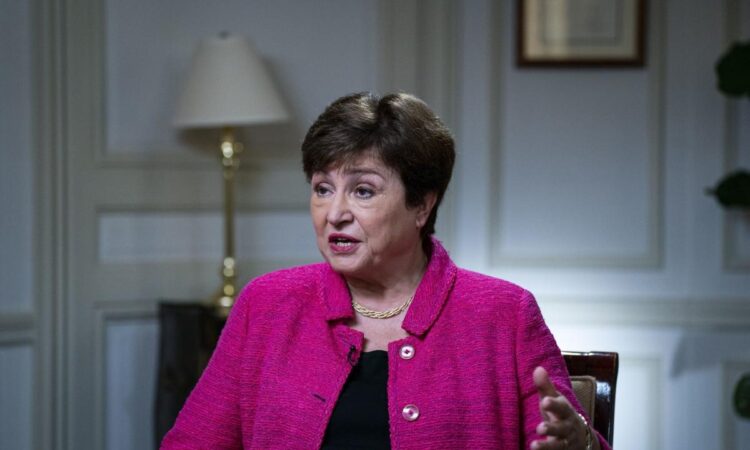
(Bloomberg) — The International Monetary Fund’s chief said the rapid acceleration in interest rates “exposed vulnerabilities in the financial sector,” adding that the banking industry needs to be on watch for additional risks.
Most Read from Bloomberg
Industry leaders need to “anticipate shocks and be ready to act when they occur, because they will be coming,” Kristalina Georgieva said in an interview with Stephanie Flanders, the head of economics and government at Bloomberg News, at the Milken Institute Global Conference in Beverly Hills, California.
“What we have lived through in the last years has been a series of unthinkable events,” Georgieva said. “The pandemic, the war in Ukraine, the rapid jump of interest rates after many, many years of staying low.”
Georgieva’s comments Monday come as US regulators continue efforts to shore up the banking sector, which has been rattled by the Federal Reserve’s aggressive interest-rate hikes and accelerating depositor withdrawals.
First Republic Bank became the fourth regional lender to collapse since since turmoil kicked off in March, with the Federal Deposit Insurance Corp. over the weekend orchestrating its sale to JPMorgan Chase & Co.
The IMF last month warned that the turmoil in the banking system will likely be a drag on economic growth, and that financial markets remained fragile and stressed.
It lowered its growth outlook to 2.8% for this year, and warned of further downside risks as stresses in the financial sector adds to pressures from tighter monetary policy and Russia’s invasion of Ukraine.
The crisis lender also cautioned that economic fragmentation and geopolitical tensions will weigh on global gross domestic product over the next five years, a message Georgieva reinforced on Monday.
Debt Issues
The IMF chief also discussed issues around delays in restructuring emerging-market debt.
More than 70 low-income nations face a collective $326 billion debt burden, with more than half of them already in or near debt distress, including Zambia, Ethiopia and Ghana.
Efforts to restructure those debts, and rescue those economies from crisis, have been hampered over disagreements between traditional creditors like the Paris Club — mainly Western rich nations — and new entrants like China, the biggest lender to developing economies.
That failure of cooperation among creditors was a key theme at last month’s Spring Meetings of the IMF and World Bank. That included the so-called Global Sovereign Debt Roundtable, which was broadly tasked with hammering out a way forward for resolving debt treatment among all creditors.
‘Better Mechanism’
“Everybody recognizes that unless we create a better mechanism for debt restructuring, everybody loses,” she said Monday.
China at last month’s meetings softened its insistence that multilateral lenders like the World Bank take haircuts, or losses, on their debt along with all other creditors. That came amid an apparent concession by the World Bank to boost ultra-low interest loans and grants to countries in debt distress.
Georgieva said she has seen some shift in China’s thinking on debt issues, although she added that greater transparency on Beijing’s lending is needed.
“We need to walk together, because if we don’t, there will be catastrophe for many countries,” she said.
(Updates with comment on debt issues in 13th paragraph.)
Most Read from Bloomberg Businessweek
©2023 Bloomberg L.P.





